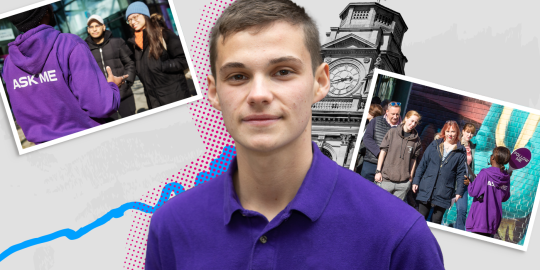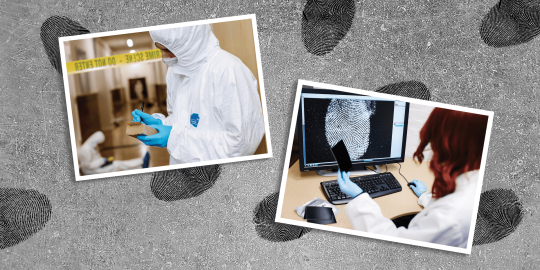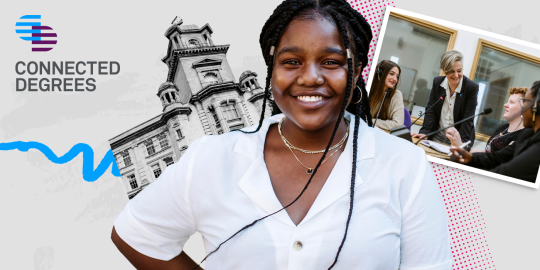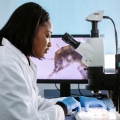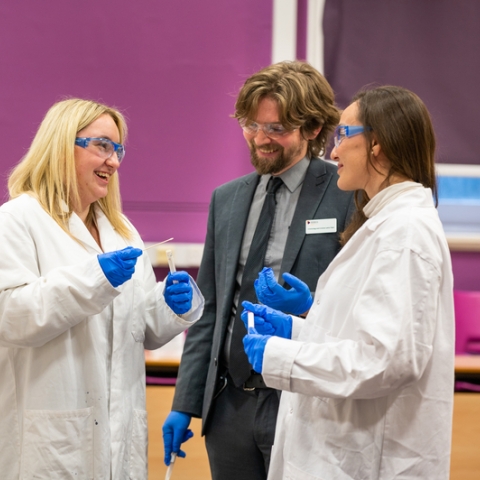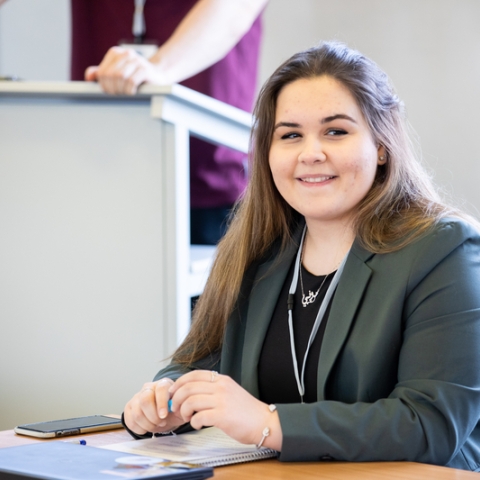Find a course:
We're here for you every step of the way
Portsmouth: Your time, your place.

Introducing Connected Degrees
Portsmouth is the only UK uni to offer a 3 year course with 4th year placement.
As well as being able to take a traditional sandwich placement before your third year on most of our undergraduate degrees, you can now take your work placement after your final year.
We call courses with this placement option Connected Degrees.
Upbeat music plays whilst text describes our Connected Degrees.
We'll support you to the next level
Explore your postgraduate journey.
We're top 3 in the UK for research power
We respond to challenges, influence policy, and help change the world for the better with our global research.

We're making headlines
Read more of our latest news.
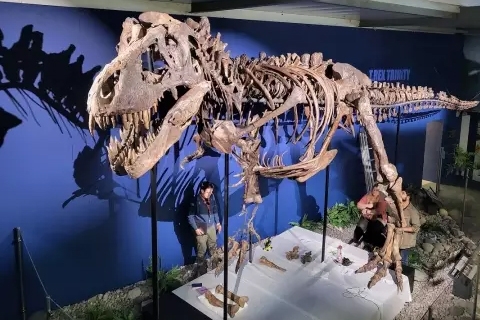
Portsmouth-based team lead scientific work on multimillion-dollar T. rex skeleton
A team of palaeontologists from the University of Portsmouth is leading the scientific research on the extraordinary Tyrannosaurus rex skeleton ‘Trinity’.
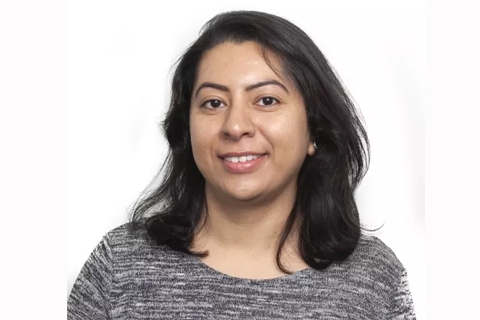
Scientist wins international award for her work on developing cancer diagnosis technologies
Dr Priyanka Dey was recognised for her pioneering research to develop technology that can detect and locate cancer in a patient’s body without them having to undergo a surgical biopsy.

The Big Plastic Count
The UK's largest plastic waste survey reveals 1.7 billion pieces of plastic packaging still being thrown away by households weekly, with only 17% being recycled domestically.
We're an award-winning university
Discover where we're ranking and what we've achieved.
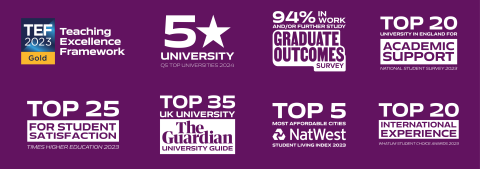
We’ll help you change the world
Explore our spotlight Undergraduate courses.


